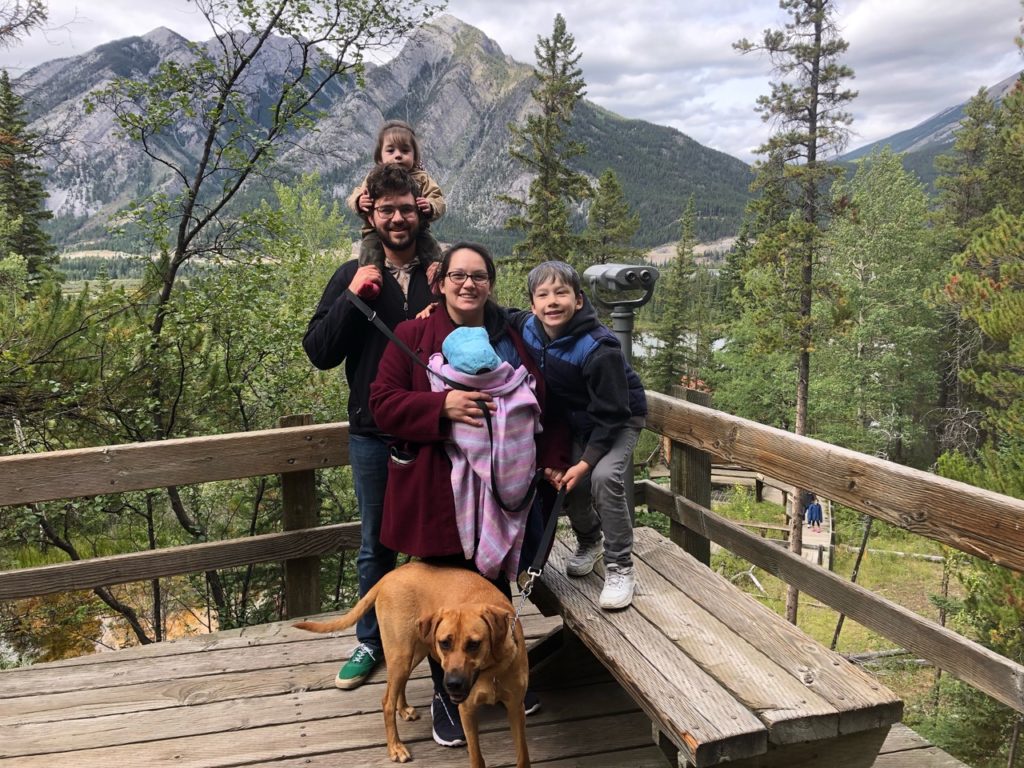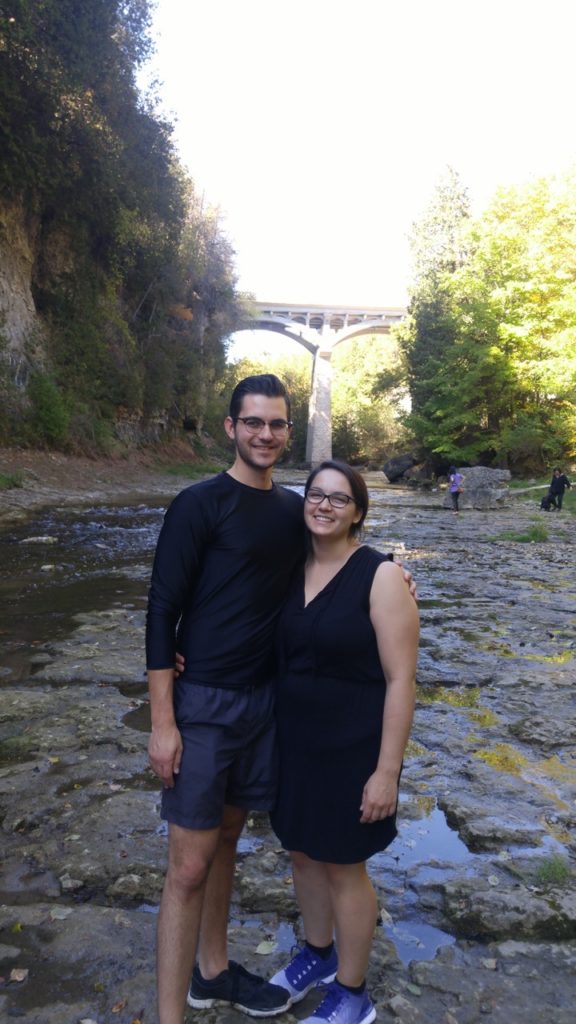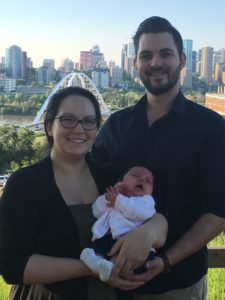As Valentine’s Day approaches and thoughts turn to romance, RhPAP thought it would be interesting to speak with some health-care couples—including doctors, nurses, health-care aides, medivac pilots, a paramedic, and a fire chief—to learn about how they keep the fires of passion burning in the face of an unpredictable schedule and the stress that comes with working in the health field.
The good news on our findings? None of the couples can imagine it any other way!

– Photo provided by Raquel Chisaakay
Being aware of your partner’s state of mind and knowing when to pick up the slack are essential skills for keeping a relationship strong for couples who work in health care.
That’s the advice of High Level’s Raquel Chisaakay and Adam Kent.
Adam, a medevac pilot with CanWest Air who grew up in St. Albert, and Raquel, a paramedic who currently works ground ambulance shifts with Aeromedical Emergency Services, worked together transporting patients from remote communities in Northwestern Alberta.
“We were friends for quite some time working and then that kind of developed into more of a relationship,” said Adam.

– Photo provided by Raquel Chisaakay
Raquel was born to a Dene Tha’ mother and a French-Canadian father and brought up in Chateh about an hour northwest of High Level. She has first-hand knowledge of the challenges faced by the many Indigenous communities that she and Adam serve around High Level including the Dene Thá First Nations in Chateh, Meander River, and Bushe River; Little Red River Cree Nation in John D’Or, Fox Lake, and Garden River; as well as Beaver First Nation and Tall Cree First Nation.
Talking about work isn’t banned in their household. In fact, the two thrive on chatting about new things that the other has learned or experienced over the course of their shifts.
“With Raquel, I love hearing about her medical stuff, because I’m currently working on a psychology degree,” said Adam. “It’s quite fun for me when I can cross reference what I’m learning in my degree with what Raquel is telling me about various drug therapies or things like that.”
“There’s so many aspects [of our careers] that they kind of overlap,” adds Raquel, who is currently upgrading her training to an Advanced Care Paramedic designation which is now required on the air ambulance.
Adam is also a great support for her when she needs to talk through some of the tougher work issues.
“That’s one of the things that everyone’s [ask]ing … how do you go to your spouse with your stressors of the job? Adam can kind of relate … and we talk a lot about that.”
COVID-19 hasn’t brought huge changes to the couple’s work as they are used to taking precautions with personal protective equipment; nevertheless, it’s been hard not socializing with friends and family.

– Photo provided by Raquel Chisaakay
Raquel also finds it difficult when she’s parenting alone with their four daughters and one son who range from six months to 15 years old.
“Since I’ve been home on maternity leave, I’ve been feeling a little more cooped up and stir crazy because I can’t get out with my kids … and do stuff that would normally tire them out,” she said referring to resources such as the toy-lending library and local parks.
“I feel like my break is when I get to go to work and have that separation.”
While scheduling babysitters for the kids can be tricky, Adam said the couple have become accustomed to their regularly changing shifts.
“It’s been quite easy in a way, because we’re both very used to that sort of dynamic lifestyle where it’s not so regular nine to five, Monday to Friday,” he said, noting his shifts last 12 hours.
“When you’re on call, you just kind of put your brain into thinking about, ‘I’m at work right now…. Anything that I am doing otherwise is a privilege, and, if I get called away, then I get called away.’”
Both are ready to jump in and pick up after the other if duty calls. Adam said that you can’t get upset when your partner has to run out on short notice, and that it is simply a part of the lifestyle.
“I think it works very well when you have that understanding.”
— Lorena Franchuk
Did you enjoy this article?
Subscribe to the Rural Health Beat to get an article about positive developments in rural health delivered to your inbox each week.
Oops! We could not locate your form.
